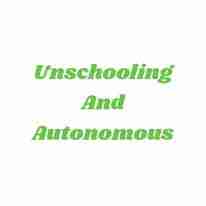
Don’t worry, we know it’s a heck of a lot to take in. Bookmark our website, join our Facebook group, ask questions and you’ll figure it all out. There’s no rush.
WHAT DOES IT MEAN TO BE CHILD LED?
When you talk of unschooling and autonomous Home Education, people immediately make assumptions based on the information they have been given by articles in the mainstream media. They will think that your children do nothing all day, have no rules, run wild, are rude and inconsiderate, dirty, feral, and will grow up without even the most basic skills. In almost all cases, the complete opposite is true.
Unschooling or Autonomous learning, as a method of education gives children complete ownership of their learning. They choose the topics based on their interests, and they choose the way in which they will learn about those things. Every child learns in a way which is unique to them, and allowing them to use that style of learning means allowing them to learn in the most natural, and therefore most effective way. For example your child may learn best from reading, rather than listening.
Some children do not process information efficiently in certain ways. They may prefer to watch a documentary, or rather many documentaries, on a subject, and will amaze their parents with the extent of the knowledge they have retained some time later on the subject. Some learn by doing – they cannot learn by sitting and reading or watching, they must be involved, somehow, in an activity which engages their physical senses at the same time as their brains. These children will gravitate towards building models of castles out of the recycling, using a bicycle to discover how a dynamo works, caring for plants to see what it is that living things need. And of course, there are children who use a mix of these methods depending on what it is they are learning about! In all of these, though, the child IS learning. The core skills – Maths, English, and Science – are picked up organically along the way. In the same way as a child learns to walk and talk, they learn to read, to write, to add up and take away, to predict outcomes scientifically, and all the rest, without ever needing to spend their weekend memorising spellings for a test on Monday morning. It allows complete freedom of learning, meaning that a child is never hurried from one subject to the next. You never have to say “yes, that is an interesting thing about Ancient Egypt, but we’re learning about World War 2 now” or forced to continue a subject that holds no interest or relevance and so will not be retained beyond the end of the lesson. A family could be completely unschooled educationally, but still leading an otherwise traditional lifestyle with set mealtimes and bedtimes etc.
An older child/teenager who has been allowed the freedom to lead their education is more likely to have established interests and strengths, they may know if they want to do GCSEs or what they want to do post 16. They will want to do what is needed to move on to the next stage of their life, and be able to create the structure needed to study the content of a GCSE for example.
Radical, or Whole Life Unschooling builds further on this. As well as there being no arbitrary rules or limits on their education, there are none in any part of their lives. Bedtime is not a set time of day, but happens instead when a child is tired. Parents of younger children help them to recognise the signs of tiredness – yawning, feeling irritable, not being able to concentrate etc – and encourage them to act in an appropriate way to deal with that physical need. The same happens with all other needs – hunger, thirst, illness, and emotional upset. It allows the children to take control of their bodies and minds, and to learn from birth to respond to those needs in an appropriate way. There are, naturally, fewer rules in a family who lives in this way. Respect, however usually is one. This covers every aspect of life. Self respect – including, but not limited to, respect for your body and its physical needs, respect for your emotional needs, respect for your own belongings. Respect for others – their needs and belongings. Respect for animals, for the environment, for everything you can think of. If it deserves respect, it gets it.
Conversely to what is expected of families who live in this way, children gain emotional intelligence from a young age. They are actively encouraged to think about the consequences of their actions and to make amends in a genuine way if they have done something wrong. Parents work alongside their children in a partnership, guiding them through their childhood, and allowing them the freedom to grow into the best version of themselves that they can.
Staffordshire website design and website SEO by Fellowship Studios.
Keep up to date with home ed news, important info and some fun stuff.